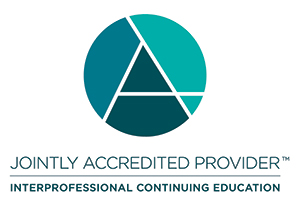Please note: AABB reserves the right to make updates to this program.
Live Program Date: Wednesday, March 29, 2023 - On-Demand Available
Program Number: 23EL-818
Director/Moderator: Huy P. Pham, MD, MPH, Medical Director and Adjunct Professor of Medicine, National Marrow Donor Program (NMDP), Seattle, WA
Speakers:
Therapeutic monoclonal antibodies are increasingly being used in the treatment of patients with a variety of conditions including malignancy, infection, and inflammatory diseases. The interference caused by monoclonal antibodies in clinical laboratory testing is an emerging concern that requires both recognition and the development of appropriate solutions to mitigate. For example, anti-CD38 and anti-CD47 can cause interference in with routine pre-transfusion testing in the blood bank and thus, might affect the turn-around time in identification of possible alloantibodies and potential delay in compatibility testing for patients requiring blood transfusion. Therefore, it is essential for transfusion services to be aware of such therapy being administered to patients and to develop solutions to overcome this interference to enhance patient safety. This program will provide an introduction to monoclonal antibody therapy, especially ones that may cause interference in serological testing. The interference in blood bank testing caused by these drugs will be described, along with possible solutions to overcome the interference using currently available techniques. Finally, examples of how transfusion services handle such challenges in conjunction with the clinical service will be reviewed.
After participating in this educational activity, participants should be able to:
Please note: if you registered for the live eCast you do not need to register for the on-demand eCast (access to the on-demand eCast was included with the live eCast registration).
| Single Viewer | Register |
| Group Viewing | Register |
This activity is eligible for one (1) continuing education credit/contact hour for Physicians, California Nurses, California Lab Personnel, Florida Lab Personnel and General Participation credit. AABB reserves the right to reduce or increase the number of credits granted based on the final activity duration. For more information on each credit type please visit our Continuing Education Credits webpage.
There is no financial support for this activity.

In support of improving patient care, this activity has been planned and implemented by the Association for the Advancement of Blood & Biotherapies (AABB), which is jointly accredited by the Accreditation Council for Continuing Medical Education (ACCME), the Accreditation Council for Pharmacy Education (ACPE), and the American Nurses Credentialing Center (ANCC), to provide continuing education for the healthcare team.
Physicians (ACCME): AABB designates this live activity for a maximum of one (1) AMA PRA Category 1 CreditTM. AABB designates this enduring activity for a maximum of one (1) AMA PRA Category 1 CreditTM. Physicians should claim only the credit commensurate with the extent of their participation in the activity.
Claiming Credit
Live Activity - Upon completion of the live activity, you will receive instructions to complete your evaluation, which is necessary to claim credit and receive your certificate of attendance/completion (credit must be claimed by the date provided in the instructions). The evaluation can be found by logging into the AABB Education Platform.
Enduring Activity - Once the enduring (on-demand) program is available, you will receive instructions to access the AABB Education Platform. Upon completion of viewing the enduring activity, you will need to complete the evaluation, which is necessary to claim credit and receive your certificate of completion (credit must be claimed by the date provided in the AABB Education Platform).
Program & Credit Expiration Dates:
Disclosure Declaration
It is the policy of the Association for the Advancement of Blood & Biotherapies to ensure independence, balance, objectivity, and scientific rigor and integrity in all of its CE activities. Faculty must disclose to the participants any relationships with commercial companies whose primary business is producing, marketing, selling, re-selling, or distributing healthcare products used by or on patients. AABB has evaluated, identified, and mitigated any potential conflicts of interest through a rigorous content validation procedure, use of evidence-based data/research, and a multidisciplinary peer review process. The following information is for participant information only. It is not assumed that the presence of such relationships will have a negative impact on the presentations.
Disclosures for the planners of this event can be found here. Disclosures for the program faculty, peer reviewers, and AABB personnel are provided at the beginning of the program.
Dr. Huy P. Pham is the Medical Director at the National Marrow Donor Program (NMDP) Apheresis Collection Center in Seattle, which is the first apheresis center that is owned and operated by the NMDP. He is also an adjunct professor of Medicine at the Medical College of Wisconsin, which is the home of the academic and research department of the NMDP. Dr. Pham specializes in Apheresis and Transfusion Medicine and is actively involved in many committees at the AABB and ASFA.
Randall W. Velliquette is the Technical Director for Immunohematology at the New York Blood Center Enterprises located in New York, New York. Prior to the NYBC, Randall worked in the Transfusion Services department in a large academic hospital in Manhattan. Randall is actively involved in many AABB committees.
Dr. Lance Williams has served a Consultant Physician at the Mayo Clinic in Phoenix, Arizona since November of 2019. He is currently the medical director of therapeutic apheresis, but also serves in a consulting capacity for blood bank, coagulation, the human cellular therapy lab, and the core laboratory. From 2013 to 2019, he was a tenured associate professor at the University of Alabama at Birmingham (UAB). In his time there, he held many titles including the following: medical director of therapeutic apheresis; medical director of special coagulation; medical director and CLIA lab director at 5 community hospitals; and, associate residency program director. During his time at UAB, he earned 6 teaching awards from both the Pathology residency program and the medical school curriculum.